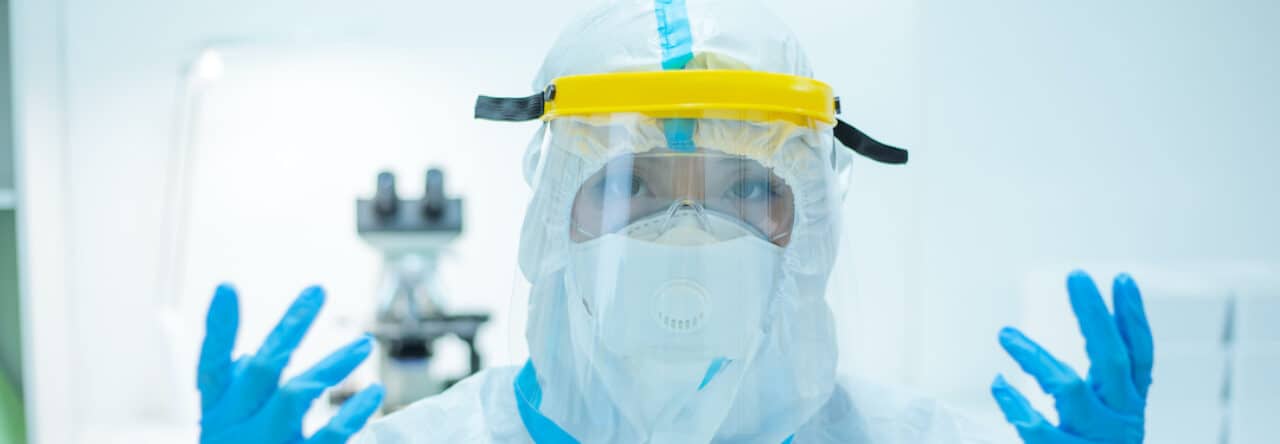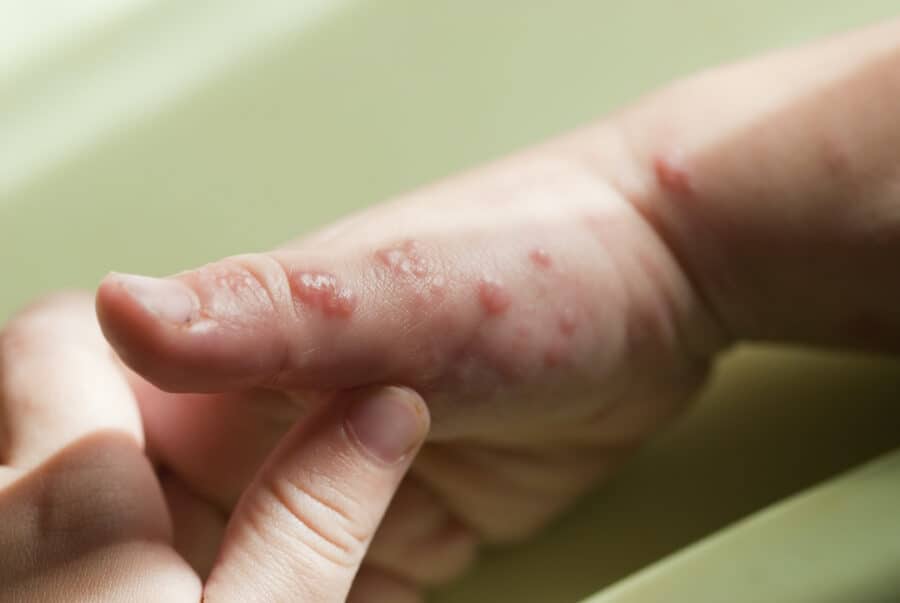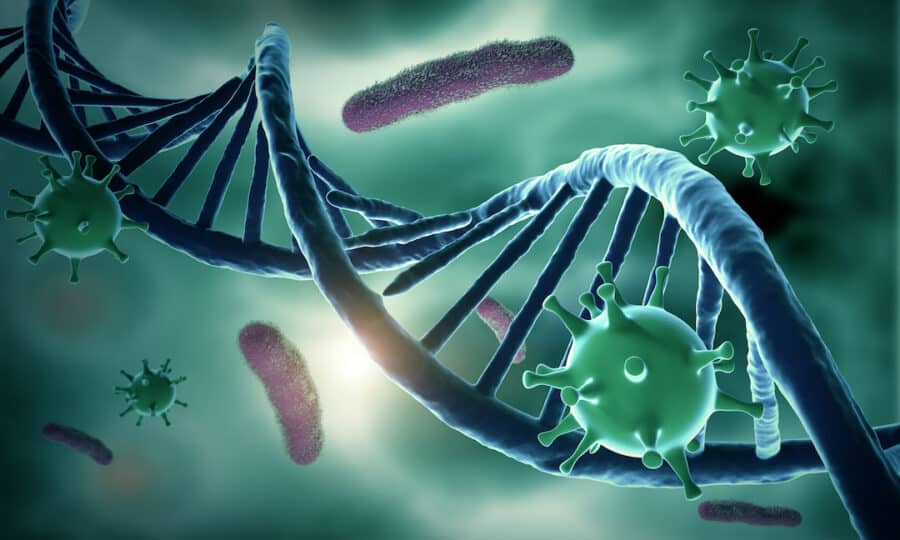Entering motherhood is a beautiful journey, but it’s also a challenging one. You’ve got a whole new life to care for and your body’s in recovery mode. That’s where top Singapore confinement centre experts come in. These professionals specialise in postnatal care, offering essential tips to help you bounce back after childbirth.
Postnatal recovery isn’t just about physical healing. It’s about regaining your strength, balancing your hormones, and adapting to your new role as a mum. The right confinement practices can make this transition smoother and more comfortable. So, let’s delve into some expert advice on postnatal recovery from Singapore’s leading confinement centres.
Remember, every woman’s postnatal journey is unique. What works for one may not work for another. But with the right guidance from confinement centre experts, you can navigate this new phase of life with confidence. Stay tuned as we share these expert tips that will aid your recovery and ensure your well-being.
Fundamentals of Effective Postnatal Recovery
Effective postnatal recovery is much like navigating an uncharted terrain—it’s daunting, unpredictable, and every woman’s experience differs. However, the advice of confinement centre experts can serve as your compass, guiding you through this new chapter in life.
First and foremost, remember that postnatal recovery isn’t solely about physical healing—it concerns the entire woman. It’s every bit about regaining strength, balancing hormones, and transitioning into your new role as a mother. There’s an undeniable emphasis on both physical and mental well-being.
The first tip from top confinement centre experts in Singapore revolves around the importance of adequate rest. Your body has undergone tremendous changes and given life to a new being—it deserves its downtime. A regular sleep schedule, napping when the baby sleeps, and enlisting assistance when required can ensure you’re well-rested.
Nourishing your body is paramount during this phase. Remember that your body may need up to 500 additional calories if you’re breastfeeding. Well-balanced meals with an appropriate blend of protein, fibre, fats, carbohydrates, and essential vitamins will help optimise your recovery.
There’s immense value in staying hydrated. Whether breastfeeding or not, sufficient fluid intake aids digestion, rejuvenates your skin, and kickstarts your metabolism.
Engaging in light exercises as per your physician’s advice is beneficial. While heavy lifting and rigorous workouts should be avoided until fully recovered, mild aerobic exercises, like walking or yoga, can restore physical strength and reduce postpartum depression risks.
Remember that hormone levels fluctuate intensely after childbirth. It’s crucial to remember this while understanding the reasons behind any emotional ups and downs. It’s equally vital to express these feelings to your loved ones or professionals. Never undervalue the impact of mental health during your postnatal journey.
This advice is universal, but remember that no two paths are identical. Your recovery will be unique, and that’s completely natural. You’re embarking on what can be the most rewarding journey of your life—allow yourself time, practice patience, and remember, you’re not alone.
Motherhood, though challenging, can be navigated with confidence. By following these expert tips and accepting support when you need it, you’ll sail through this new chapter in your life.
Nutrition: Building Blocks for Postpartum Health
Remember, nutrition is a key factor in your journey towards postnatal recovery. Your body needs optimal nutrition to repair tissue, regain strength, restore hormonal balance, and support breastfeeding.
Nutrition from a confinement centre’s perspective – it’s not about restrictive dieting or shedding baby weight rapidly. It’s about providing your body the nourishment it craves to recover and thrive in this new phase of life.
Protein is a critical nutrient. It aids in tissue repair and supports milk production. Include diverse protein sources, be they lean meats, fish, eggs, nuts, or lentils, to ensure that you’re meeting the daily requirement. Do stay hydrated by drinking water, broth, as well as nursing teas which promote milk production. Aim for a rainbow of fruits and vegetables to supply a spectrum of vitamins, minerals, and antioxidants that facilitate healing and boost your immune response.
Let’s delve deeper into the aspects of postnatal nutrition.
Recuperative Confinement Meals
Singaporean confinement centres take nutritional science seriously, frequently offering a menu of recuperative confinement meals. Expect a delicate balance of carbohydrates, proteins, fibre, and healthy fats. These centres believe in the old-age wisdom of traditional recipes. Many utilise herbs, such as ginger and turmeric, and ingredients like red dates, longan, and goji berries in their dishes. These ingredients have properties which promote digestion, improve blood circulation, and energise your system.
Hydration is Non-Negotiable
Hydration isn’t just about quenching your thirst. Hydration is crucial in facilitating digestion, flushing out toxins, and promoting skin elasticity. It’s also a key factor in lactation. Your daily fluid intake – including soups, herbal teas, and water – should be increased during breastfeeding to support your hydration status.
Seeking Dietary Advice
Reach out to the experts on postpartum nutrition. The culmination of scientifically-backed research and centuries-old wisdom guarantees that you’ll receive guidance that’s tailored to your specific postnatal recovery and breastfeeding journey. Seek advice – be it regarding supplements or meal plans – and tailor your diet with your health goals and needs in mind.
Postnatal recovery isn’t one-size-fits-all. Likewise, your nutrition should be personalised, a reflection of your unique recovery journey.
Physical Recovery: Exercises and Rehabilitation
Much like nutrition, physical recovery after childbirth is multifaceted. Top Singaporean confinement centres uphold the importance of gentle exercise and progressive rehabilitation for overall health restoration and returning to your pre-pregnancy state.
Just after childbirth, your immediate focus should be on resting and healing. While bed rest is advised in the initial stages, you shouldn’t stay sedentary for too long. Once you’ve got the green light from your healthcare provider, consider doing light exercises. These can facilitate:
- Better blood circulation
- Reduction of postpartum swelling
- Prevention of blood clots
- Improvement in your moods
- Quicker healing of the wound (in case of a C-section)
Typical exercises suggested include walking, light stretches, pelvic floor exercises, and kegel exercises. Joined with spiritual practices like yoga and meditation, these can offer significant benefits for body-mind balance.
Indeed, these activities can seem daunting with a newborn around. But remember, your physical recovery is just as crucial as your baby’s needs. Finding pockets of time for self-care will serve you well in the long run, providing much-needed energy to handle your new responsibilities.
When it comes to more rigorous exercises, it’s pivotal to wait until your body is ready. Overexertion can lead to unnecessary injury, slowing down your recovery process more. A gradual build-up of activity will allow your body to recoup strength cautiously.
As part of rehabilitation, Singaporean confinement centres often recommend postnatal massage therapies. Regular massages can help ease muscular tension, supports the realignment of your body, and promotes overall relaxation.
Consult with your healthcare provider or physiotherapist before starting any postnatal exercise plan. They can provide a customized program that fits your current physical state and recovery goals. Most importantly, you should listen to your body. If you feel discomfort or pain during any activity, stop immediately and seek professional advice.
En route to full physical recovery, patience is your ally. It takes time for your body to heal and regain strength. As the adage goes, “Slow and steady wins the race.” And with these tips, there’s no doubt you’re well on your way.
Emotional Well-being: Strategies for New Mothers
Postnatal recovery isn’t limited to physical healing. You’re going through a massive life change, it’s only normal to experience changes in your emotional health too. Emotional well-being plays an equally crucial role in your journey to recovery.
One vital source of emotional balance in new mothers can be connecting with others. You’re not alone in this journey; a community of mothers exists who perfectly understand your experiences. Joining a local mothers’ community or a trusted online forum can provide valuable companionship and shared wisdom.
Self-care is another crucial aspect of emotional recovery. Often, new mothers neglect their own needs focusing entirely on their babies. Yes, it’s a tough job juggling between baby care, rest, and household chores. However, you can seek help from your family members or consider hiring a confinement nanny to provide some relief. This time can be used to indulge in self-care activities like reading, pursuing a hobby, or simply relaxing.
Mindfulness and meditation play an essential role in calming the mind and revitalising energy levels. Spending a few minutes every day focusing on your breath can be immensely therapeutic.
If you’re breastfeeding, lactation counselling might be beneficial. It’s well-known that breastfeeding can sometimes be stressful. A lactation consultant can provide solutions for any breastfeeding concerns and ensure that the process is as smooth and stress-free as possible.
Remember, it’s okay to ask for help. If you’re feeling persistently low, anxious, or overwhelmed, immediately seek help from a healthcare professional. Postnatal depression is a serious condition which affects one in 10 women. With the correct support and counselling, it’s entirely treatable.
In this journey of adapting to motherhood, remember to be kind and patient with yourself. Take this one day at a time. One day, you’ll look back and realise that you’ve made more progress than you thought possible. Postnatal recovery is a phase that passes, and each step taken contributes significantly to feeling the best that you can be.
Breastfeeding Support and Nutrition
Breastfeeding, often deemed a natural process, might appear daunting to many new mothers. But don’t worry—you’re not alone. Leveraging the experiences of professionals from the top Singapore confinement centres can equip you with the right knowledge and confidence.
Singapore confinement centres teach the importance of correct latch-on techniques, feeding cues, and maintaining a healthy diet for optimum milk production. You are likely to find these breastfeeding support sessions invaluable in overcoming common issues like sore nipples, engorgement, or low milk supply.
The significance of nutrition while breastfeeding can’t be overstated. A well-balanced diet rich in essential vitamins, minerals and proteins supports your body in producing nourishing milk for your baby. You’re advised to include plenty of fruits, vegetables, whole grains and lean proteins in your diet based on recommendations of confinement nutritive meals.
Let’s highlight some traditional ingredients and herbs used in Singapore that assist in postnatal nutrition:
- Red dates: These are good for replenishing blood as they contain high amounts of iron.
- Goji berries: They’re nutrient-dense, support eye health, and are great for boosting the immune system.
- Ginger: This is a staple in most postnatal diets due to its warming properties, which are believed to help new mothers recover.
Remember to hydrate yourself sufficiently too, as it directly impacts milk production. Most importantly, approach this journey with patience and kindness towards your body. This vital phase is about nurturing your baby and restoring your own health. Aided by quality advice and guidance, you’ll smoothly progress on this path of postnatal recovery.
The Importance of Rest and Sleep
Now that you’re aware of the importance of nutrition and exercise during your postnatal period, it’s important not to overlook another crucial aspect of your recovery: rest and sleep. Sleep is pivotal in the healing and recovery process, especially when you’re coping with the physical demands of a newborn.
As a new mum, getting enough sleep may sound like an impossible feat. However, bear in mind that quality, not quantity, matters. Even short periods of undisturbed, deep sleep can be highly recuperative. It’s during these deep sleep cycles that your body works on tissue repair, hormonal balance, and boosts immune function—all of which are essential for robust postnatal recuperation.
A few sleep hygiene tips can greatly enhance sleep quality. Establish a consistent sleep schedule synchronised with your baby’s sleep times, making sure to set an environment conducive to sleep. This might include reducing light and noise levels, ensuring your bed and bedroom temperature are comfortable, and practicing relaxation techniques before hitting the hay.
Many new mums in Singapore find the traditional confinement period helpful in facilitating sleep. During confinement, it’s recommended to take multiple short naps throughout the day whenever the baby sleeps. Remember: the adage, “Sleep when the baby sleeps,” is no overrated advice. It’s the practical approach you need to adopt.
Apart from ensuring quality sleep, plenty of rest throughout the day likewise contributes to your progress. Understand that your body has gone through a transformative journey during pregnancy, labour, and childbirth. It’s important to prioritise physical rest as much as emotional rest. Opt for activities that do not drain you physically or emotionally. You might find reading, mindful breathing, or simply sitting quietly with a cup of hot herbal tea rejuvenating.
Aside from resting your body, remember to give your mind a break too. If you find that your mind is restless, meditative exercises can help soothe your mind and put your nerves at ease. Postnatal yoga, for example, combines soothing breathing exercises with gentle physical movements that can promote mental tranquillity.
Remember that sleep is as equally critical as good nutrition, physical recovery, lactation, and emotional well-being in your postnatal recovery journey. Therefore, carve out and protect your much-needed downtime as you would anything else during this period.
Navigating Common Postnatal Challenges
When it comes to postnatal recovery, knowledge is wealth. Being aware of and prepared for the common challenges that could come your way, your recovery road can be smoother and less daunting. The top Singapore confinement centre experts suggest several practical ways to navigate these postnatal hurdles.
The first hurdle you may encounter is your own body changes. Your body may not rebound to its pre-pregnancy state as quickly as you’d like. It’s imperative to remember that your body has undergone substantial changes during pregnancy and childbirth. Be patient with yourself and honour the journey your body has taken.
- You might experience hair loss
- Your skin might change
- You might notice the shape of your body has altered
Emotional upheavals are yet another challenge, which can be as daunting as physical changes. Hormonal shifts, sleep deprivation, and adjusting to a new role can all steer you towards emotional upheavals. It’s normal to feel a mix of emotions during this phase. You’ll often hear about postnatal depression but rest assured, it’s completely treatable with the right help and support.
You might not have anticipated the lifestyle changes that are in store for you. They can be intimidating. Seek help from your family, friends, and professionals who specialize in this domain.
- Your sleep schedule will revolve around the baby
- You’ll need to integrate baby feeding into your routine
- You’ll need to emotionally adjust to parenthood
Another challenge you might face is dealing with society’s expectations. It’s key to remember that every woman’s experience is unique.
Remember that it’s your journey and your rules apply. Navigating through this challenging phase of life will be easier with the right attitude and guidance.
Long-term Health: Planning Beyond Confinement
Embarking on your postnatal journey, you’ll find the transformational power of nutrition, exercise, emotional balance and sleep undeniable. As valuable as these immediate postnatal care elements are, it’s equally crucial to formulate a long-term health plan. This strategy extends well beyond your confinement period, optimising your health to facilitate wholesome motherhood experiences.
Personalised Nutrition
One of the foundational yet often overlooked elements is personalised nutrition. Not every body type, lifestyle or nutritional needs are identical. Consequently, tailored nutrition becomes an indispensable tool in your arsenal. Consider consulting a registered dietitian who can help construct a balanced diet plan that suits your particular needs and preferences. This approach doesn’t just cater to your immediate recovery, but to the long-term goal of maintaining your strength and energy.
Regular Exercise
Another proactive measure is incorporating regular exercise into your routine. While you may not be ready to hit the gym or run a marathon just yet, it pays to consult with specialists. They can guide you through appropriate, gradual exercises perfect for your postnatal stage. This introduces a routine that lasts well beyond confinement, promoting cardiovascular health, muscle tone, and overall wellness.
Emotional Support
Emotional well-being is equally paramount. It’s not unusual to feel a significant emotional shift post childbirth. Support groups, counselling, online communities -find what works best for you. Emotional stability is a long-term investment, not just for your personal happiness, but also for your ability to foster a nurturing environment for your newborn.
Prioritise Sleep
Finally, give sleep the importance it deserves. Establish a conducive atmosphere and habits conducive to quality sleep. This ties back to your long-term health as sleep plays a significant role in tissue repair, hormonal balance, and immune function.
Remember, your postnatal journey extends beyond the initial confinement phase. Planning for long-term health is an indispensable part of the process. Take it one step at a time, focusing on what works for you and your body.
Conclusion: Embracing Motherhood with Confidence
It’s clear that postnatal recovery is a multi-faceted journey, requiring attention to your physical health, emotional well-being, and lifestyle adjustments. Remember, it’s not just about the confinement period, but your long-term health too. Sleep isn’t just a luxury, but a vital part of your recovery. It aids in tissue repair, hormonal balance, and immune function.
You’ve got to give your body the time it needs to heal. Be patient, and don’t rush into bouncing back. It’s crucial to seek emotional support, whether through support groups or counselling. Remember, it’s okay to ask for help.
Lastly, make sure you’re eating right and exercising gradually. This isn’t about losing baby weight fast, but about nourishing your body and mind. Your postnatal journey is unique to you, so focus on what works best for your body and well-being. Embrace motherhood with confidence. You’ve got this!






